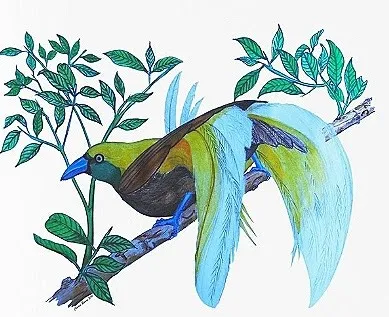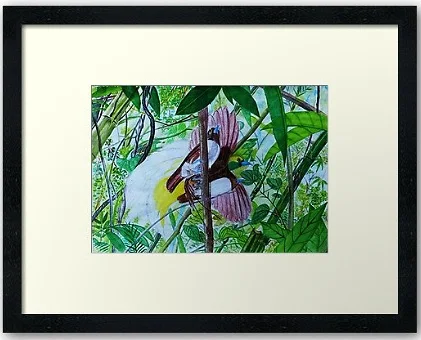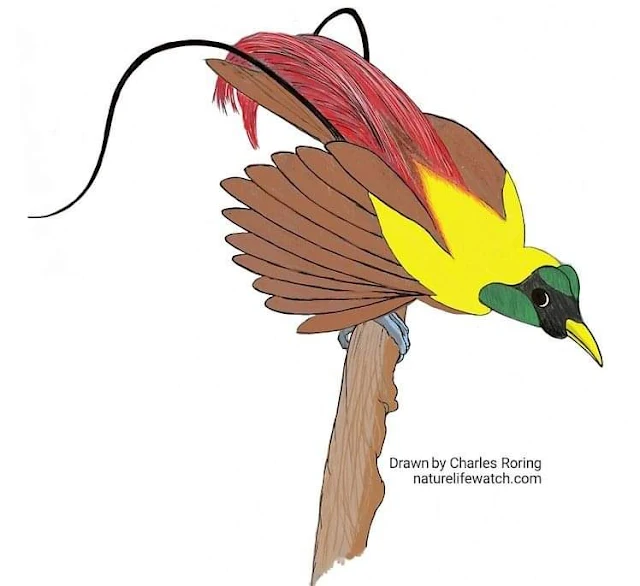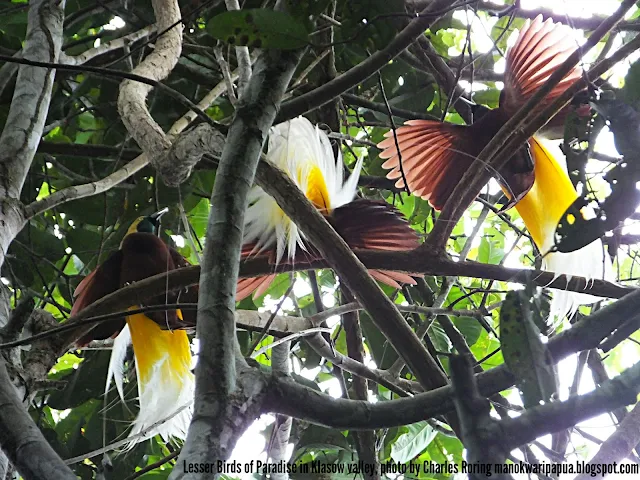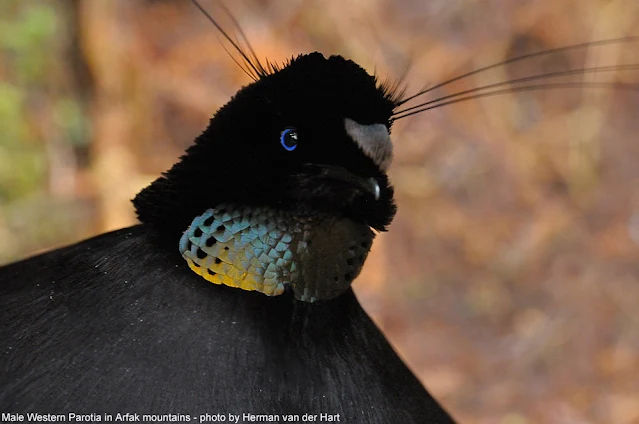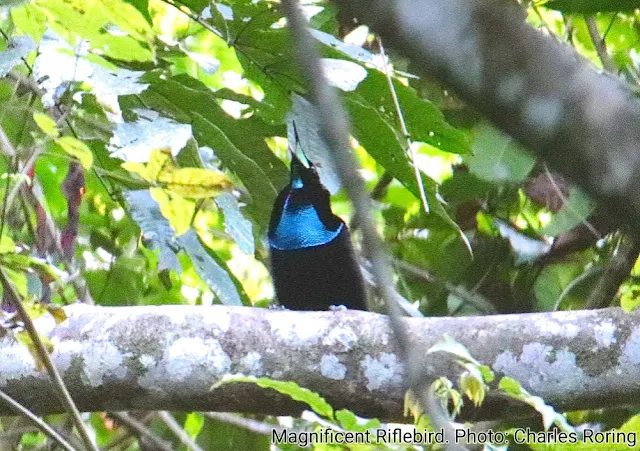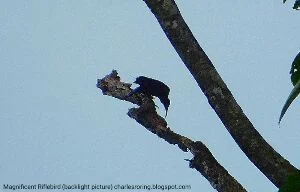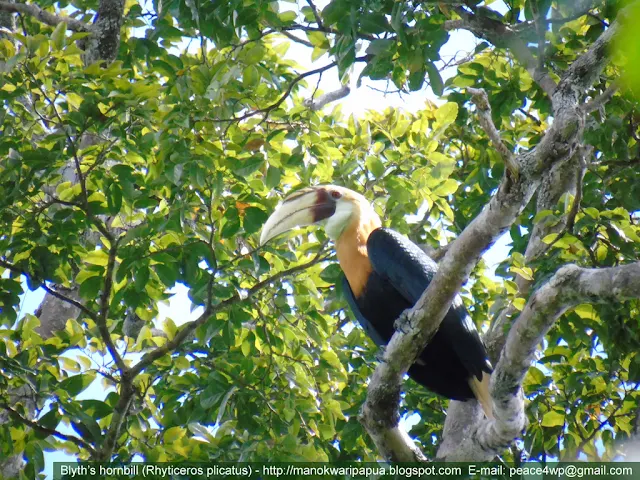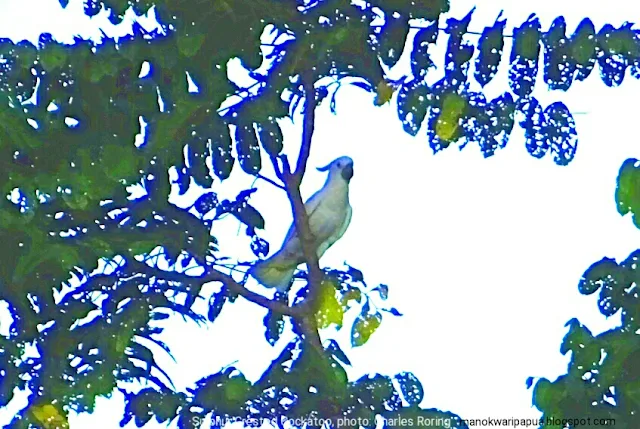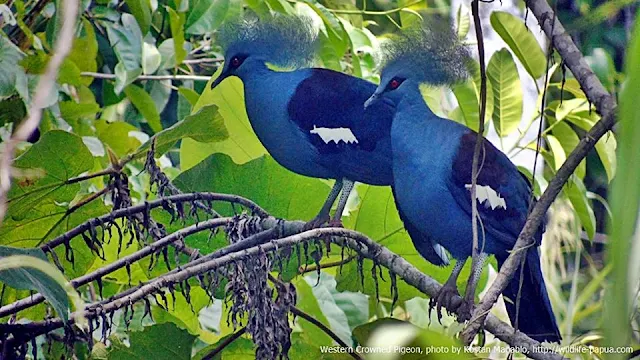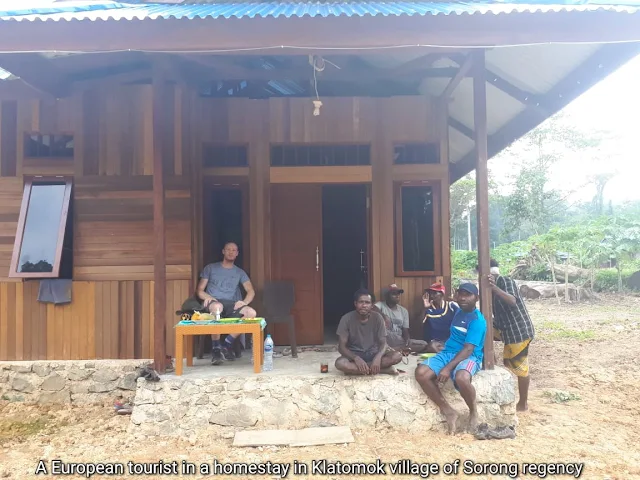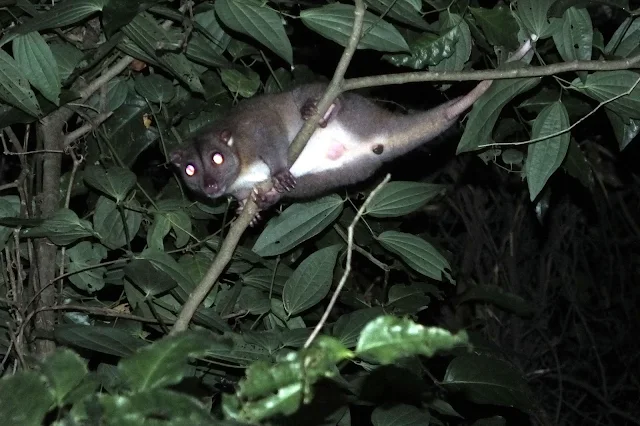Tropical rainforest of West Papua is the natural habitat of hundreds of species of birds including parrots and cockatoos. In lowland and lower montane forests, we could see Sulphur-crested Cockatoo, Palm Cockatoo, Eclectus Parrot, Red-cheeked Parrot, Large Fig Parrot, Coconut Lorikeet, Black-capped Lory, Black Lory, Red-flanked Lorikeet, Double-eyed Fig Parrot, Brehm's Tiger Parrot and a lot more.
 |
| Sulphur-crested Cockatoo (Cacatua galerita) |
Before the Covid Pandemic reached Indonesia, thousands of visitors travelled to Klasow valley of West Papua to watch birds and see other animals and plants in the forest. One of their destinations was Klasow valley in Sorong regency. There was a village in the valley. Its name was Klatomok Village. Visitors stayed there between 3 days to 1 week to explore the rainforest and see its biodiversity.
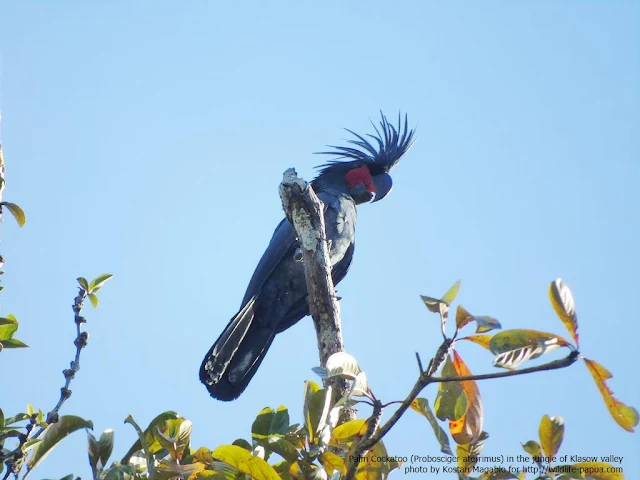 |
| Palm Cockatoo in Klasow valley (Photo: Kostan Magablo) |
Local villagers in the forest guided them during the days and nights. In addition to birds, they also saw soa-soa lizards, snakes, cuscus possum, wallaby, deer, butterflies, beetles, and etc. Most visitors brought binoculars and camera with telephoto lens.
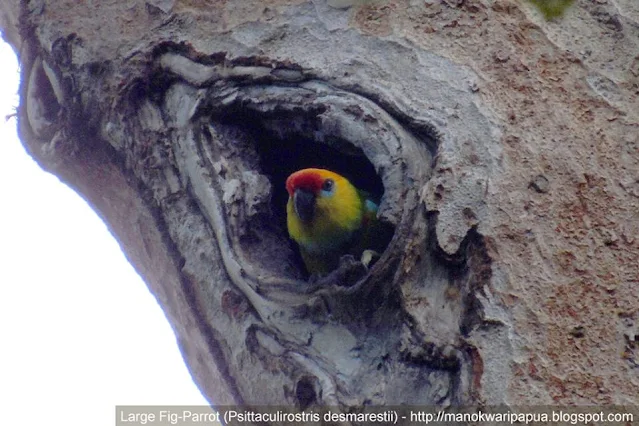 |
| Large Fig Parrot in Klasow valley |
Klatomok village was located in Sorong regency of Indonesia. It could easily be reached by 4WD cars from Sorong city. It took around 2 hours ride from Sorong to Klatomok. Visitors stayed in the houses of the villagers which were called homestay. The accommodations were simple rooms with mattresses and mosquito-nets and toilets.
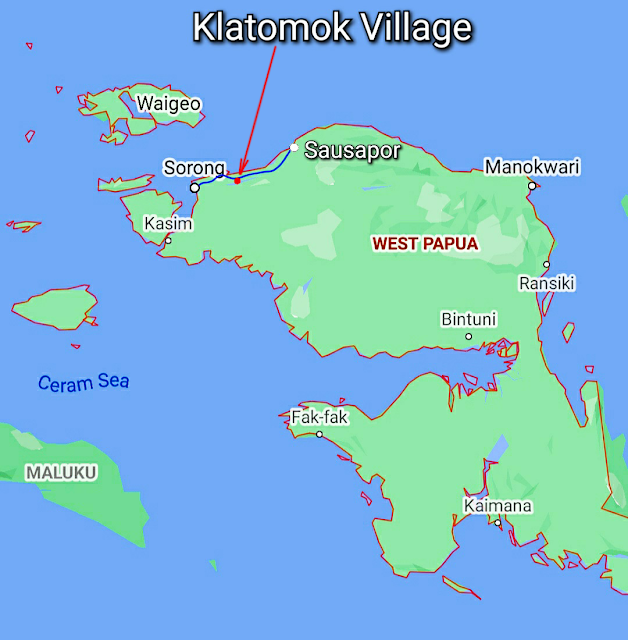 |
| Google Map Location of Klatomok Village |
Before going to Klatomok village, visitors bought food materials in the supermarkets of Sorong city and brought them to the village by car. Local villagers would cook the food in combination with food materials from the village such as sweet potatoes, and vegetables. Local fruits such as bananas and papayas could also be bought from villagers.
 |
a homestay in Klatomok village of Sorong regency
West Papua province of Indonesia |
The indigenous Papuan people who lived in Klatomok village worked as farmers. Their forest provided them with plenty of sago trees which they processed to make sago flour. Seeing how the mothers extracted sago flour from the trunk of sago tree was an interesting attraction. They also hunted wallaby, wild boar and deer as well as caught fish and shrimp in the river as the source of protein for their meals.
When the Covid pandemic has been over, visitors may be allowed by government to visit Indonesia again. We hope that this village will be able to receive guests again so that they will be able to generate income while at the same time preserve their precious rainforest environment. This is written by Charles Roring.

